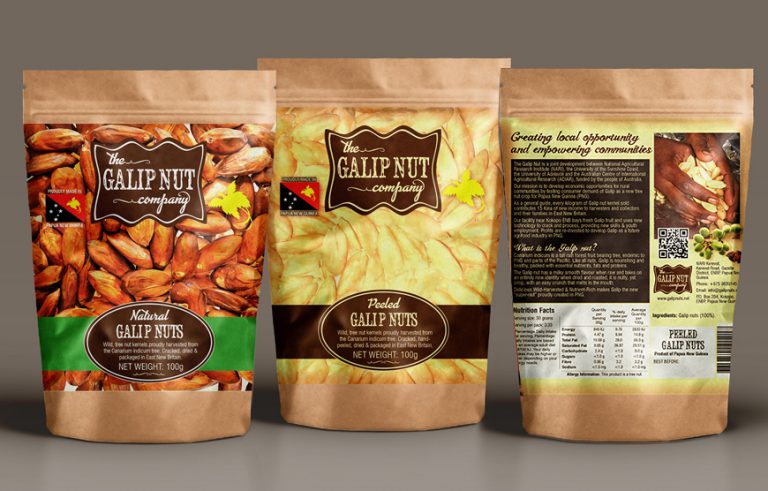After a year’s hard work, brainstorming and working with parties in Papua New Guinea and Australia, the Arris team are excited to be preparing to go to print with labels for a brand new food product.
The Galip Nut is indigenous to PNG, and the first PNG grown and produced product. Arris’s role has been to help with marketing and branding in preparation to introduce the nut to the commercial retail market for the very first time.
Based at the Waite Research Precinct, Arris is an innovative Australian-owned consulting and communications company, providing services in two distinct areas: agricultural & environmental services, and marketing/communications.
Creating local opportunity and empowering communities
The challenge was not only the introduction of a new product into a very competitive retail environment, but also to tell the story of ethical production and empowering local communities. This initiative has been implemented to give the people of PNG, who harvest the nut, an opportunity to develop a market for their unique product.
As a general guide, every kilogram of Galip Nut kernel sold contributes 15 PNG Kina ($5.74 AUD) of new income to harvesters and collectors and their families in East New Britain.
“Our task was to convey this message of authenticity and the inspiring story of empowering the local community,” said Project Manager and Senior Designer at Arris, Bruno Carrocci. “We certainly hope consumers will embrace the Galip Nut.”



Background
Commercialisation and development of the Galip Nut (Canarium Indicum) is a joint development between National Agricultural Research Institute (NARI), the University of the Sunshine Coast, the University of Adelaide Centre for Global Food and Resources and the Australian Centre of International Agricultural Research (ACIAR). Hand picked and hand processed in Papua New Guinea, the Galip Nut has been identified as, “of high quality with a unique taste and with the potential to become a world commodity. It is a tasty, highly nutritious nut, containing proteins, vitamins, healthy oils, and anti-oxidants. The nut is popular among outsiders, including expatriates, and the prospects for its commercial development are considered to be excellent.”
“We are honoured to be involved in the Galip Nut story due to its humanitarian and pioneering nature, and are thrilled to see the project meet this milestone,” Bruno said.
For more information about the National Agricultural Research Institute Papua New Guinea http://www.nari.org.pg/node/353
